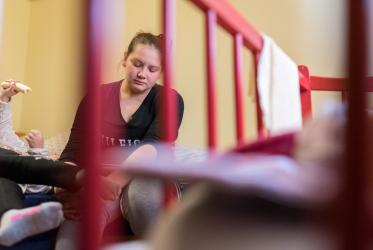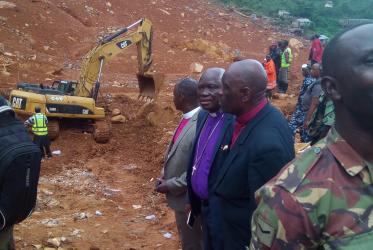Displaying 1 - 13 of 13
08 September 2022
WCC commemorates life of Bishop John K. Yambasu
21 August 2020
Rev. Kenneth Mtata reflects on journey of transition in Zimbabwe
20 September 2018
Doing his best without being the best
07 September 2018
Churches in Sierra Leone respond to Ebola crisis
14 August 2014








